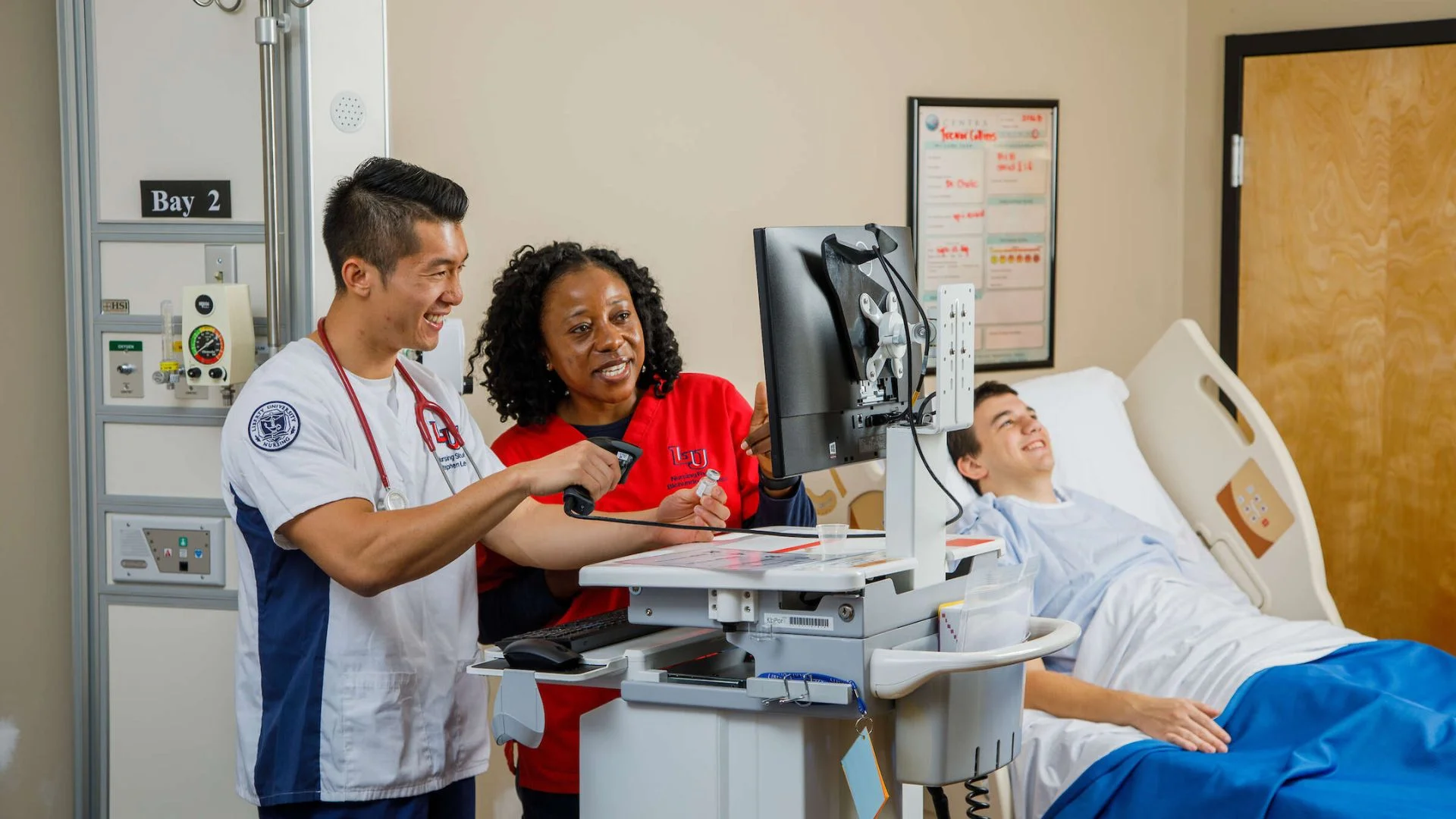Liberty University MSN Program
Liberty University, a prominent Christian institution, offers a robust Master of Science in Nursing (MSN) program designed to prepare registered nurses for advanced practice roles. The MSN program at Liberty University emphasizes leadership, clinical expertise, and holistic patient care, aligning with the university’s mission to develop professionals who integrate faith with learning. This article provides an in-depth look at the MSN program at Liberty University, covering its curriculum, specializations, admission requirements, and the benefits of choosing this program.
Overview of Liberty University
History and Mission
Founded in 1971 by Dr. Jerry Falwell, Liberty University has grown into one of the largest Christian universities in the world. Its mission is to develop Christ-centered men and women with the values, knowledge, and skills essential to impact the world. Liberty University’s commitment to academic excellence, spiritual growth, and community service is evident in its diverse range of programs and student support services.
Accreditation and Recognition
Liberty University is accredited by the Southern Association of Colleges and Schools Commission on Colleges (SACSCOC) to award associate, bachelor’s, master’s, specialist, and doctoral degrees.
Liberty University’s MSN Program
Program Structure and Delivery
The MSN program at Liberty University is offered online, providing flexibility for working nurses to advance their education while maintaining their professional and personal responsibilities.
Curriculum Overview
The MSN program curriculum is designed to build on the knowledge and skills of registered nurses, emphasizing advanced clinical practice, leadership, and research. The program consists of core courses, specialty courses, and a capstone project or practicum.
Core Courses
Core courses in the MSN program cover essential topics in advanced nursing practice, including:
- Nursing Theory and Advanced Practice: Exploration of nursing theories and their application to advanced practice.
- Advanced Health Assessment: Development of comprehensive health assessment skills for diverse populations.
- Pathophysiology for Advanced Nursing Practice: In-depth study of pathophysiological processes and their implications for patient care.
- Healthcare Policy and Ethics: Examination of healthcare policies, ethical issues, and their impact on nursing practice.
- Nursing Research and Evidence-Based Practice: Introduction to research methods and the application of evidence-based practices in nursing.
Specializations
Liberty University’s MSN program offers several specializations, allowing students to tailor their education to their career goals. Each specialization includes specific coursework and clinical experiences relevant to the chosen field.
Nurse Educator
The Nurse Educator specialization prepares nurses for roles in academic and clinical education settings. Key courses include:
- Curriculum Development and Evaluation: Principles of curriculum design and assessment in nursing education.
- Teaching Strategies in Nursing: Effective teaching methods and instructional strategies for nursing education.
- Assessment and Evaluation in Nursing Education: Techniques for assessing student learning and program outcomes.
Nurse Administrator
The Nurse Administrator specialization focuses on leadership and management roles within healthcare organizations. Key courses include:
- Healthcare Finance and Budgeting: Financial management principles and budgeting processes in healthcare.
- Organizational Leadership and Management: Leadership theories and their application to nursing administration.
- Quality Improvement and Patient Safety: Strategies for improving healthcare quality and ensuring patient safety.
Clinical Nurse Specialist
The Clinical Nurse Specialist (CNS) specialization prepares nurses for advanced clinical roles in specialized areas of practice. Key courses include:
- Advanced Pharmacology: Comprehensive study of pharmacological principles and their application to patient care.
- Clinical Decision-Making: Development of advanced clinical reasoning and decision-making skills.
- Specialty Practicum: Clinical experiences in the student’s chosen specialty area.
Capstone Project or Practicum
The MSN program culminates in a capstone project or practicum, allowing students to apply their knowledge and skills in a real-world setting. The capstone project involves conducting research or a quality improvement project, while the practicum provides hands-on clinical experience under the guidance of a preceptor.
Admission Requirements
Academic Prerequisites
To be eligible for the MSN program at Liberty University, applicants must meet the following academic prerequisites:
- Bachelor’s Degree in Nursing: Applicants must hold a Bachelor of Science in Nursing (BSN) from an accredited institution.
- GPA Requirement: A minimum cumulative GPA of 3.0 on a 4.0 scale is typically required.
Professional Experience
Applicants are expected to have relevant professional experience in nursing:
- Registered Nurse (RN) Licensure: Applicants must hold a current, unencumbered RN license.
- Clinical Experience: A minimum of one year of clinical nursing experience is preferred.

Application Materials
The application process involves submitting various materials to demonstrate the applicant’s qualifications and readiness for advanced study:
- Online Application: Completion of Liberty University’s online graduate application.
- Transcripts: Official transcripts from all previously attended institutions.
- Letters of Recommendation: Two or three letters of recommendation from professional or academic references.
- Personal Statement: A personal statement outlining the applicant’s career goals, reasons for pursuing the MSN, and how the program aligns with their aspirations.
- Resume or Curriculum Vitae (CV): A detailed resume or CV highlighting the applicant’s professional experience and accomplishments.
Additional Requirements
Depending on the chosen specialization, additional requirements may include:
- Interview: Some specializations may require an interview with program faculty.
- Background Check and Drug Screening: A background check and drug screening may be required for clinical placements.
Benefits of Liberty University’s MSN Program
[H3] Flexible Learning Environment
The online format of Liberty University’s MSN program allows students to balance their studies with work and personal commitments. The flexibility to complete coursework at their own pace makes it an ideal choice for working professionals.
Experienced Faculty
Liberty University’s MSN program is taught by experienced faculty who are experts in their fields. The faculty members are committed to student success and provide personalized support and mentorship throughout the program.
Faith-Based Education
As a Christian institution, Liberty University integrates faith and learning, encouraging students to approach their nursing practice with compassion and ethical integrity. The MSN program emphasizes holistic care and the importance of addressing the spiritual needs of patients.
[H3] Career Advancement
The program’s focus on evidence-based practice, clinical expertise, and leadership skills enhances graduates’ career prospects and earning potential.
Networking Opportunities
Liberty University’s extensive alumni network and connections within the healthcare industry provide valuable networking opportunities for MSN students. These connections can facilitate career advancement and professional growth.
Comprehensive Student Support
Liberty University offers a range of student support services, including academic advising, career counseling, and technical support. These resources help ensure that students have the support they need to succeed in the program.
Conclusion
Liberty University’s MSN program is a comprehensive and flexible option for registered nurses seeking to advance their careers. With its online format, experienced faculty, and emphasis on faith-based education, the program prepares nurses for advanced practice roles in various specialties.
Choosing Liberty University for an MSN degree means joining a community committed to academic excellence, ethical practice, and compassionate care. The program’s integration of faith and learning, along with its focus on leadership and clinical expertise, makes it a unique and valuable option for nurses looking to make a significant impact in the healthcare industry. Whether aspiring to be a nurse educator, administrator, or clinical specialist, Liberty University’s MSN program provides the foundation for a rewarding and successful career in nursing.








One Comment